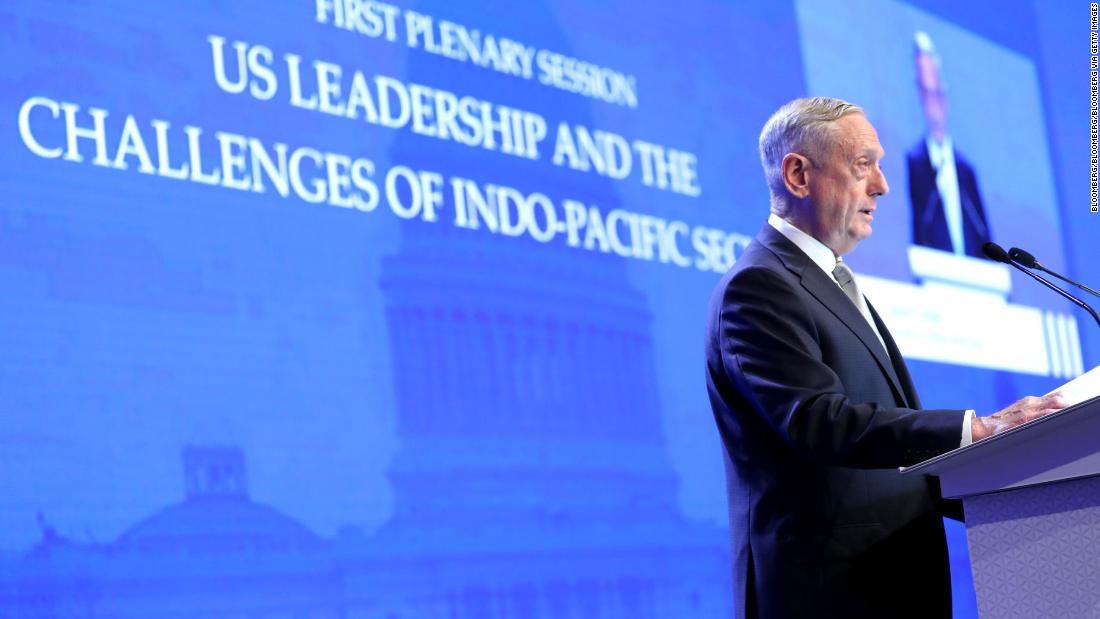“China’s policy in the South China Sea stands in stark contrast to the openness that our strategy promotes; it calls into question China’s broader goals,” Mattis said.
“Despite China’s claims to the contrary, the placement of these weapons systems is tied directly to military use for the purposes of intimidation and coercion,” he continued.
Last month, the U.S. disinvited China from a multinational naval exercise that China had previously participated in.
Mattis said this action was an “initial response” to China’s activity in the South China Sea.
“There are consequences that will continue to come home to roost, so to speak, with China, if they don’t find a way to work more collaboratively with all of the nations who have interests,” Mattis said.
Defense Secretary Jim Mattis warned China of “much larger consequences” in the future if the country continues to militarize the South China Sea and intimidate others by putting weapons on the artificial islands.
 Mattis, speaking at the Shangri-La Dialogue – a security conference in Singapore, did not specify the kind of consequences China would face if it continued with militarizing the islands.
Mattis, speaking at the Shangri-La Dialogue – a security conference in Singapore, did not specify the kind of consequences China would face if it continued with militarizing the islands.
China recently installed surface-to-air and anti-ship cruise missiles, as well as radar jamming equipment, on several of the South China Sea islands that have airstrips on them.
China claims “indisputable” sovereignty over the islands.
Mattis’ comments come as the U.S. seeks China’s help ahead of the June 12 summit between Kim Jong Un and President Trump. Trump also has threatened renewed tariffs on Chinese goods.
“Our objective remains the complete, verifiable and irreversible denuclearization of the Korean Peninsula,” Mattis said, adding that North Korea will only receive sanctions relief until its nuclear program is shut down.
“North Korea will receive relief only when it demonstrates verifiable and irreversible steps to denuclearization,” Mattis said Sunday.